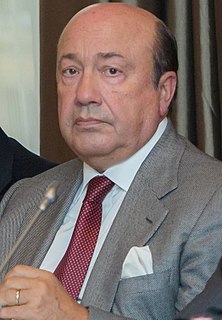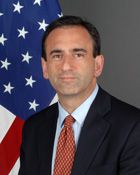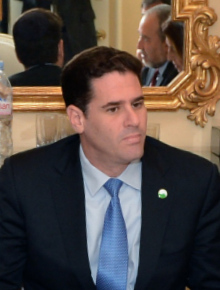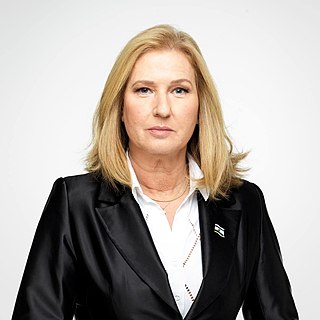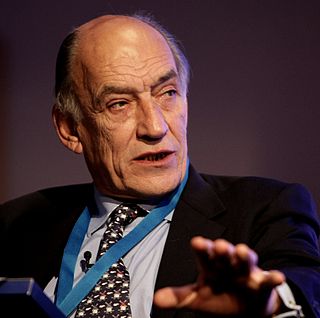A Quote by Kimberly Zisk Marten
It is clear that there would nothing a U.N. Security Council resolution that condemned Syria because Syria is Russia's ally, and Russia has a veto in the U.N. Security Council.
Related Quotes
We know that Russia has done things that are very much against our interests. They've done things that require us to take punitive action against Russia. That does not mean we can't work with Russia where we have a common agenda. Russia is a permanent member of the United Nations Security Council; we need their help in isolating North Korea and their nuclear weapons violations. So, we still need to work with Russia. But Russia's done things that are contrary to our national security interest, and the US must respond to those types of activities.
I think it was going to be hard to work with Russians on Syria. There is some potential overlap between the U.S. and Russia in that the Russians don't want to see the Syria situation unravel to a point where they have to escalate their own involvement. But at the moment, I don't see the U.S. and Russia on the same page in Syria. Russia seems much more interested in consolidating government control over liberated areas. It seems to me that the U.S. and Russia are proving they can disagree for independent reasons in any number of theaters.
We got the Iran sanctions done. We got an agreement by Russia to allow us to use Afghanistan to transit supplies for our forces. We got a Security Council resolution on Libya. We got Russia into the WTO to bring in to it a rules-based trading system. All of those things were in our interest. The point is not whether we should work with Russia. The point is whether we should sacrifice other important interests to do so.
I am deeply worried about Donald Trump on matters of national security. He doesn't know anything himself about it, and he has appointed a national security adviser, Mike Flynn, who is a pro-Russia conspiracy theorist, and he's just put Steve Bannon, a guy with connections to white supremacy and antisemitism, onto the National Security Council.
Now we characterise Russian-Chinese relations as a strategic partnership, even a special strategic partnership. We have never had such a level of trust with China before. China is our major trade and economic partner among foreign states. We implement joint multi-billion projects. We cooperate not only within the UN Security Council, which is logical, as both China and Russia are permanent members of the UN Security Council, but also within such regional organisations as the Shanghai Cooperation Organisation, BRICS, etc.
Russia has a long-term interest in Syria. Israel by and large does not have an issue with those long-term interests that Russia has in Syria. Israel has an issue with an Iranian regime that is trying to establish this land bridge, and that openly calls and actively works for Israel's destruction. And if you ask a hundred Israelis what they want to see in Syria, you're going to get 150 answers.
The United States of America is a threat to world peace. Because what [America] is saying is that if you are afraid of a veto in the Security Council, you can go outside and take action and violate the sovereignty of other countries. That is the message they are sending to the world. That must be condemned in the strongest terms.
It has been almost three years since U.S. President Barack Obama pipsqueaked on his chemical-weapons 'red line' in Syria and joined with Russian strongman Vladimir Putin in the pantomime that resulted in the Sept. 27, 2013 U.N. Security Council Resolution 2118, which called on Assad to surrender his chemical weapons stockpile.


